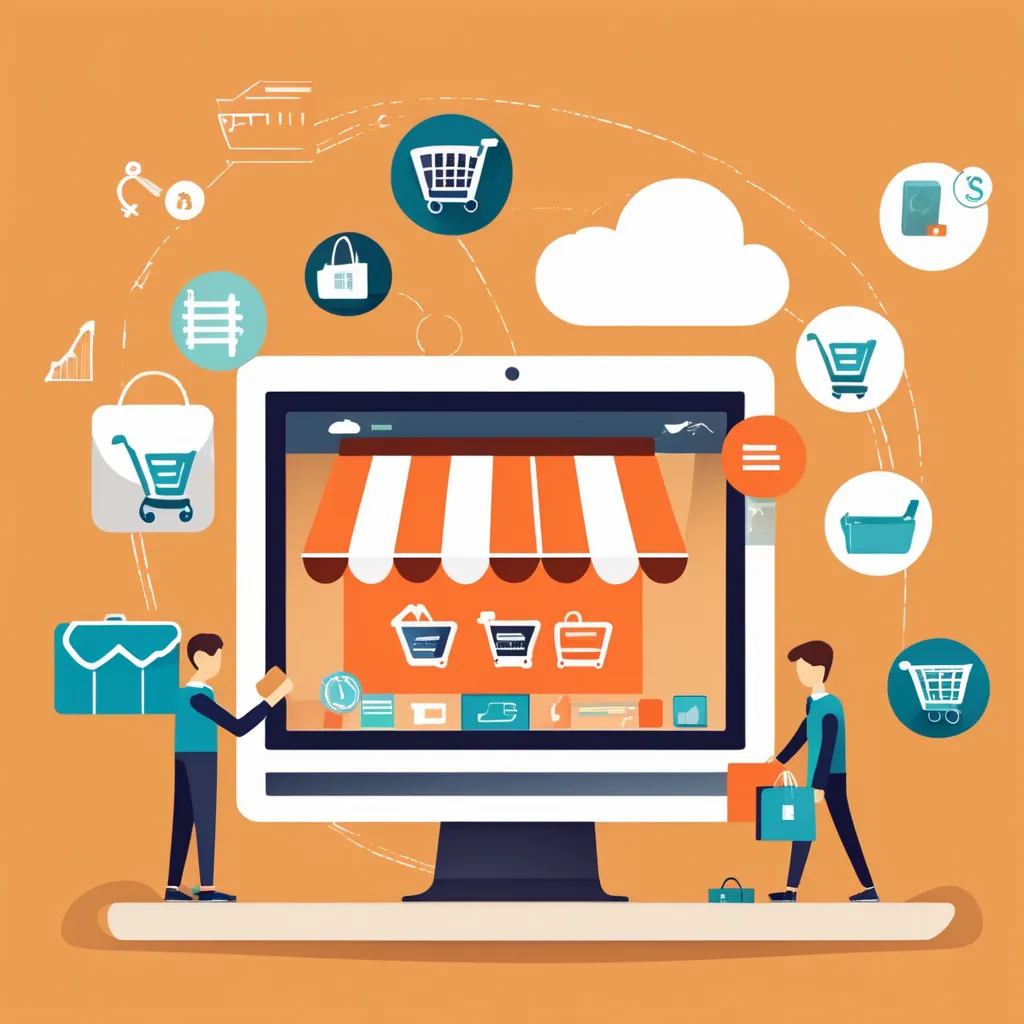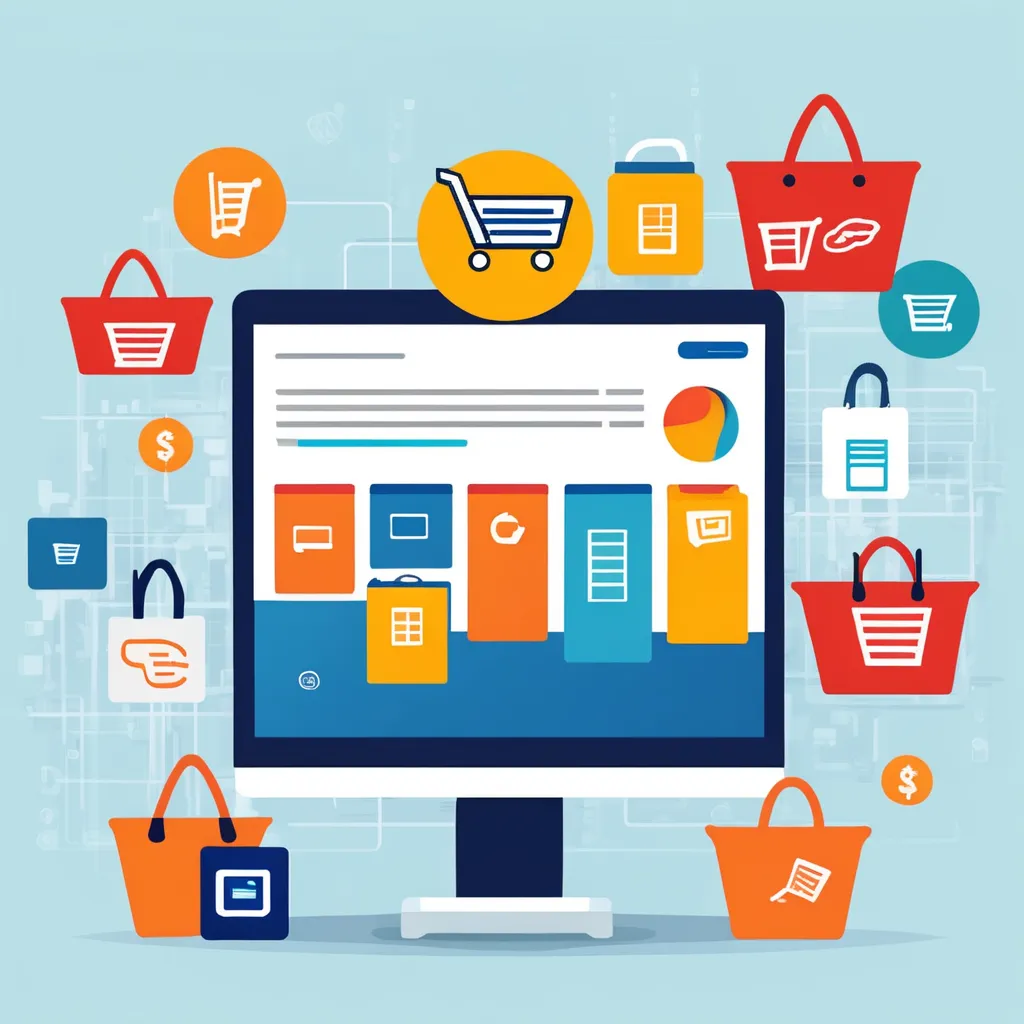
The Rise and Importance of eCommerce in Today’s Economy
Importance of eCommerce
Introduction
In the past 20 years, businesses and consumers have changed how they operate and shop because of eCommerce’s growth.
The importance of eCommerce cannot be overstated as it has not only transformed the landscape of business but also impacted our daily lives.
This article aims to delve into the emergence of eCommerce, its importance in today’s economy, and its potential future.
The Emergence and Rise of eCommerce
eCommerce, short for electronic commerce, refers to the buying and selling of goods or services using the internet.
It also involves the transfer of money and data to execute these transactions.
The concept of eCommerce started to grow in the early 1990s with the advent of the internet.
However, it was not until 1994, when the first secure online purchase was made, that eCommerce as we know it began to take shape.
The evolution of eCommerce has been rapid and transformative.
In the early days, eCommerce was limited to a few large corporations and was primarily used for B2B transactions.
In the mid-1990s, Amazon and eBay made online shopping more accessible.
This resulted in an increase in people purchasing items from businesses.
Several factors have contributed to the rise of eCommerce.
The internet has grown, payment technologies have improved, and consumers are more comfortable shopping online.
These factors have all contributed to the trend.
Shopping online is easy and convenient.
You can compare prices, read reviews, and find a wider variety of products.
This makes eCommerce a popular choice for shoppers.
Today, eCommerce is a vital part of the global retail framework.
It’s not just for the big players in the retail industry; many small and medium-sized businesses (SMBs) are now turning to eCommerce to reach a wider audience and improve their market position.
The rise of eCommerce has indeed been a game-changer in the world of business.

The Importance of eCommerce in Today’s Economy
eCommerce has become a crucial part of today’s economy, influencing both global trade and local economies.
Its importance can be seen in various aspects of economic activity.
Role in Global Trade: eCommerce has made it possible for businesses to reach a global audience.
It has broken down geographical barriers, enabling businesses to sell their products and services to customers around the world.
This has led to an increase in global trade, contributing to economic growth.
Impact on Traditional Retail: The rise of eCommerce has disrupted traditional retail.
Consumers are increasingly choosing to shop online due to the convenience, variety, and cost savings it offers.
This has forced many traditional retailers to adapt and embrace eCommerce, leading to a transformation of the retail landscape.
Facilitating Small Business Growth: One of the most significant impacts of eCommerce has been on small businesses.
eCommerce platforms have provided small businesses with a cost-effective way to reach a large audience and compete with larger businesses.
This has led to the growth and success of many small businesses, contributing to job creation and economic development.
The importance of eCommerce in today’s economy is evident.
It has transformed the way businesses operate and consumers shop, leading to economic growth and development.
As the world becomes increasingly digital, the importance of eCommerce is only set to increase.
A well-designed website can help businesses reach a global audience. Learn more about our web design solutions here.

Benefits of eCommerce to Consumers
eCommerce has not only transformed the way businesses operate but also significantly impacted consumers’ shopping habits.
Here are some of the key benefits of eCommerce to consumers:
Convenience: One of the biggest advantages of eCommerce is the convenience it offers.
Consumers can shop from the comfort of their homes at any time of the day.
This is particularly beneficial for people with busy schedules who find it difficult to visit physical stores during regular shopping hours.
Variety and Choice: eCommerce platforms offer a wide range of products from different brands all in one place.
This gives consumers a vast array of choices, allowing them to find the exact product they’re looking for.
Personalization and Customer Experience: eCommerce platforms use technology to provide personalized shopping experiences.
They use data to understand consumer behavior and preferences, allowing them to offer personalized product recommendations and deals.
This not only enhances the shopping experience but also increases customer satisfaction and loyalty.
The benefits of eCommerce to consumers are clear.
It offers convenience, variety, and a personalized shopping experience, making it an attractive option for today’s consumers.
Importance of eCommerce for Businesses
eCommerce has become an essential tool for businesses in today’s digital age.
Here are some reasons why eCommerce is important for businesses:
Reach and Scalability: eCommerce allows businesses to reach a global audience.
It breaks down geographical barriers, enabling businesses to sell their products and services to customers around the world.
This not only increases sales but also allows businesses to scale quickly.
Cost-effectiveness: Running an eCommerce store is often more cost-effective than a physical store.
Businesses can save on costs such as rent, utilities, and staff.
Additionally, many processes in eCommerce are automated, which can lead to further cost savings.
Data-driven Decision Making: eCommerce platforms provide businesses with valuable data about their customers’ behavior and preferences.
This data can be used to make informed decisions about product offerings, pricing, marketing strategies, and more.
The importance of eCommerce for businesses is clear.
It provides businesses with the opportunity to reach a global audience, operate more cost-effectively, and make data-driven decisions.
In today’s digital age, embracing eCommerce is not just an option for businesses; it’s a necessity.

The Future of eCommerce
As we look to the future, it’s clear that eCommerce will continue to play a significant role in the global economy.
Here are some emerging trends that are shaping the future of eCommerce:
Artificial Intelligence (AI): AI is being used in eCommerce to provide personalized shopping experiences, automate customer service through chatbots, and predict consumer behavior.
Augmented Reality (AR) and Virtual Reality (VR): AR and VR are being used to enhance the online shopping experience.
Customers can view products in their own space or test a virtual store.
This makes online shopping more enjoyable and engaging.
Mobile Commerce: With the increasing use of smartphones, mobile commerce is on the rise.
Businesses are optimizing their websites for mobile and developing mobile apps to cater to the growing number of consumers shopping on their phones.
Post-COVID-19 Trends: The COVID-19 pandemic has accelerated the shift to eCommerce.
With more people shopping online due to lockdowns and social distancing measures, eCommerce has become the new normal.
This trend is likely to continue post-COVID-19 as consumers’ shopping habits have changed.
The future of eCommerce looks promising.
With advancements in technology and changing consumer behavior, eCommerce is set to become even more integral to our lives.
Conclusion
The rise of eCommerce has been a game-changer in the world of business.
It has transformed the way businesses operate and consumers shop, contributing to economic growth and development.
The importance of eCommerce in today’s economy is evident, and its role is set to increase in the future.
eCommerce is a powerful tool in today’s digital age, impacting global trade, small businesses, and consumers.
In the future, technology and how people shop online will help eCommerce grow even more.
Contact us to enhance your online presence today.








